Celebrating the Festival of Light in Malaysia
Deepavali, also known as Diwali or the festival of light, symbolises the victory of light over darkness, knowledge over ignorance, and good over evil. This joyous celebration begins on Amavasya, the fifteenth day of Kartik in the ancient Hindu calendar, and typically lasts for five to six days. Each day holds unique significance and rituals that are deeply rooted in the cultural traditions of the observers. While people of diverse faiths widely observe the festival, its history is complex and intertwined with multiple stories from religious texts. Just as these narratives vary across beliefs and regions, so too do the rituals and customs associated with the festival. Generally, Deepavali is marked by prayers, family gatherings, sumptuous feasts, and, for some, the celebration of a new year. Here’s how the observers in Malaysia, particularly the Hindus, celebrate Deepavali:
Vibrant Decorations
What makes Deepavali unique is the vibrant decorations adorning the homes of its devotees, each serving as a meaningful symbol of both cultural and religious significance. Before the festival begins, devotees should clean and decorate their homes with colourful kolam or rangoli, made using coloured powders, flower petals, or rice flour. The use of vibrant colours in this artwork holds deep significance. Yellow, for instance, symbolises knowledge, joy, and positivity, reflecting the festival’s themes of renewal and hope. Red, on the other hand, represents love, passion, and auspiciousness, making it a favoured colour for decorations. Serving to welcome guests and invite the visit of Lakshmi, one of the Hindu deities, these intricate patterns are usually placed on the floor near the entrance door.
Homes are also lit with traditional oil lamps (diyas) that are placed on window ledges and doorways to dispel negativity including darkness, anger, and greed. Additionally, mango leaves and brightly coloured marigold flowers, often sewn or glued together, are hung at doorways to symbolise prosperity and welcome blessings. Planning to hunt for the perfect décor or lighting for your home but unsure where to go? How about visiting CariCari Listings to find related shops located nearby?
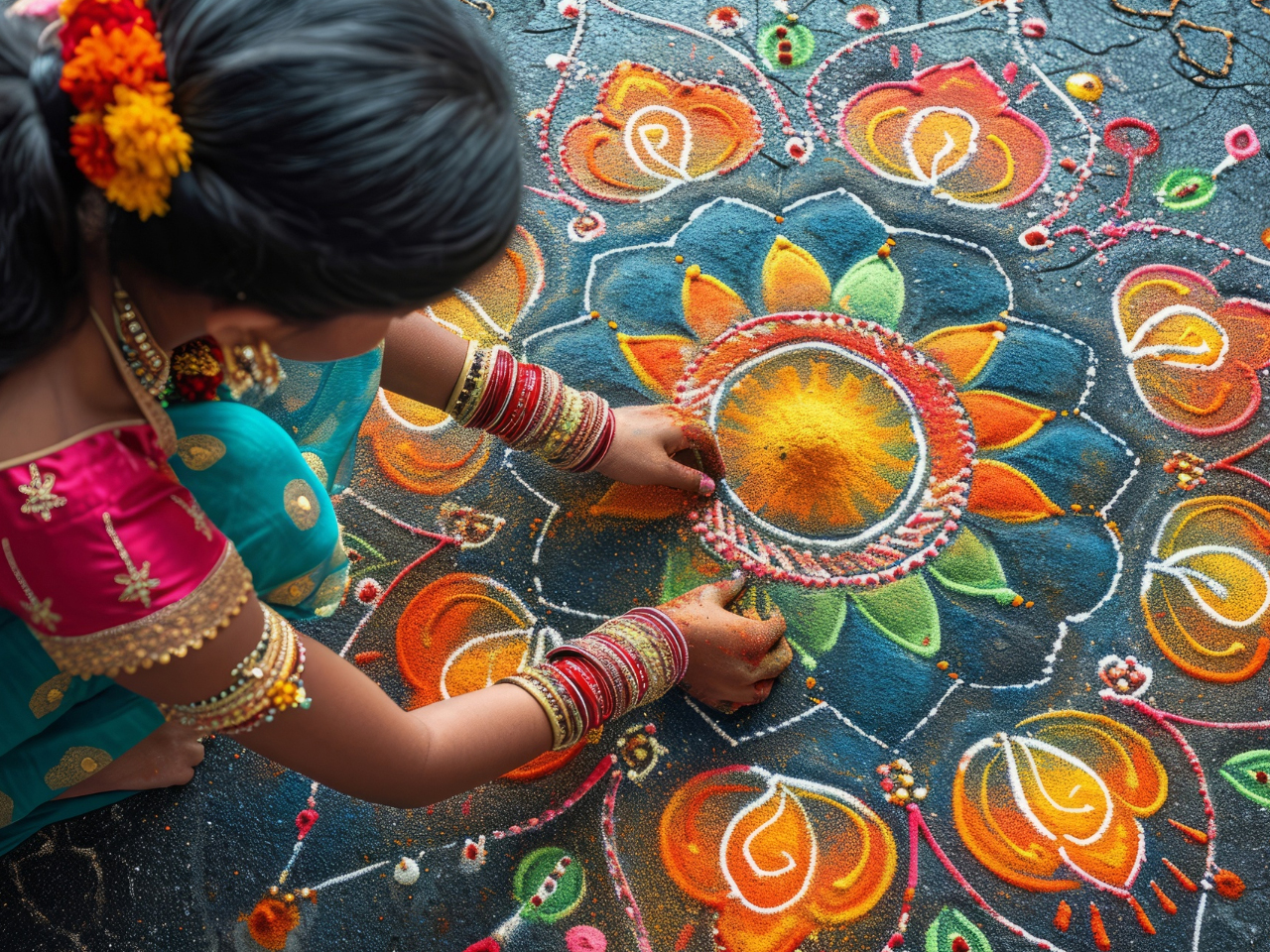
The Vibrant Decorations adorning the homes of its devotees, each serving as a meaningful symbol of both Cultural and Religious Significance
Traditional Customs and Ceremonies
For Hindu families of South Indian origin, the day begins with a ritual oil bath performed at dawn, before sunrise. This ritual signifies the cleansing of both body and soul from negativity, including pride, hatred, envy, and bad luck, allowing for a fresh start. Younger family members are then required to prostrate before their elders to receive their blessings. Devotees typically visit a temple to offer prayers to the Hindu deities, particularly Lakshmi, the goddess of wealth and prosperity. As part of the rituals, it is customary for the devotees to provide offerings to the deities, such as flowers or sweets. The visit to the temple should also be made before the families proceed to visit relatives and friends.
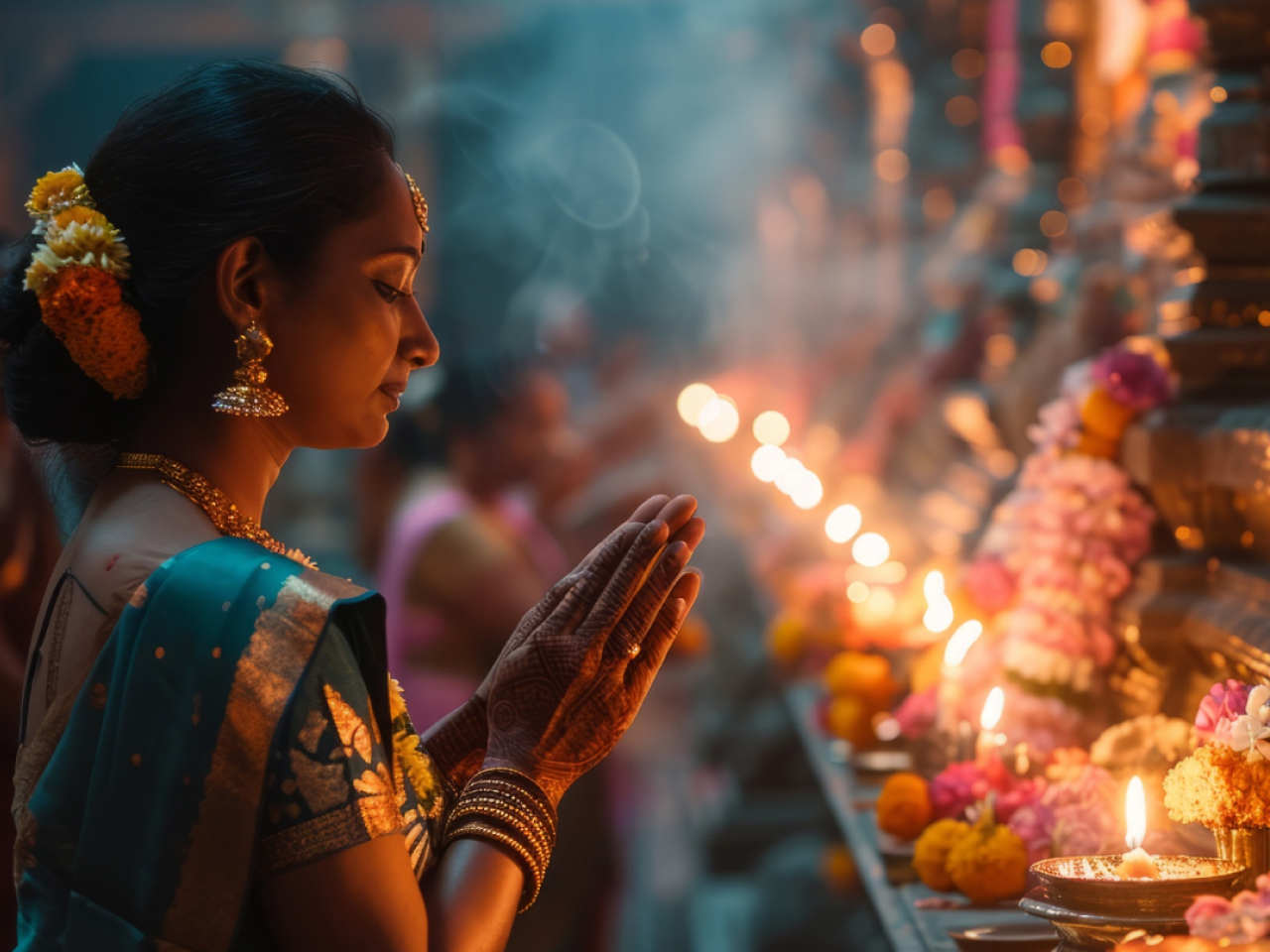
Traditional Customs and Ceremonies
Jewellery and Colourful Traditional Costumes
Devotees also wear new jewellery and dress in brightly coloured traditional clothes, avoiding black and white, to symbolise renewal and the spirit of celebration. Women often don beautifully embellished sarees or salwar kameez, while men may dress in dhotis or kurtas. Just like kolam and rangoli, the colours of the traditional attire also hold significant symbolism deeply rooted in culture and religious belief. For those still searching for the perfect sarees or kurtas to wear this Deepavali, check out our CariCari Listings, where you’ll find a list of featured textile and clothing shops.
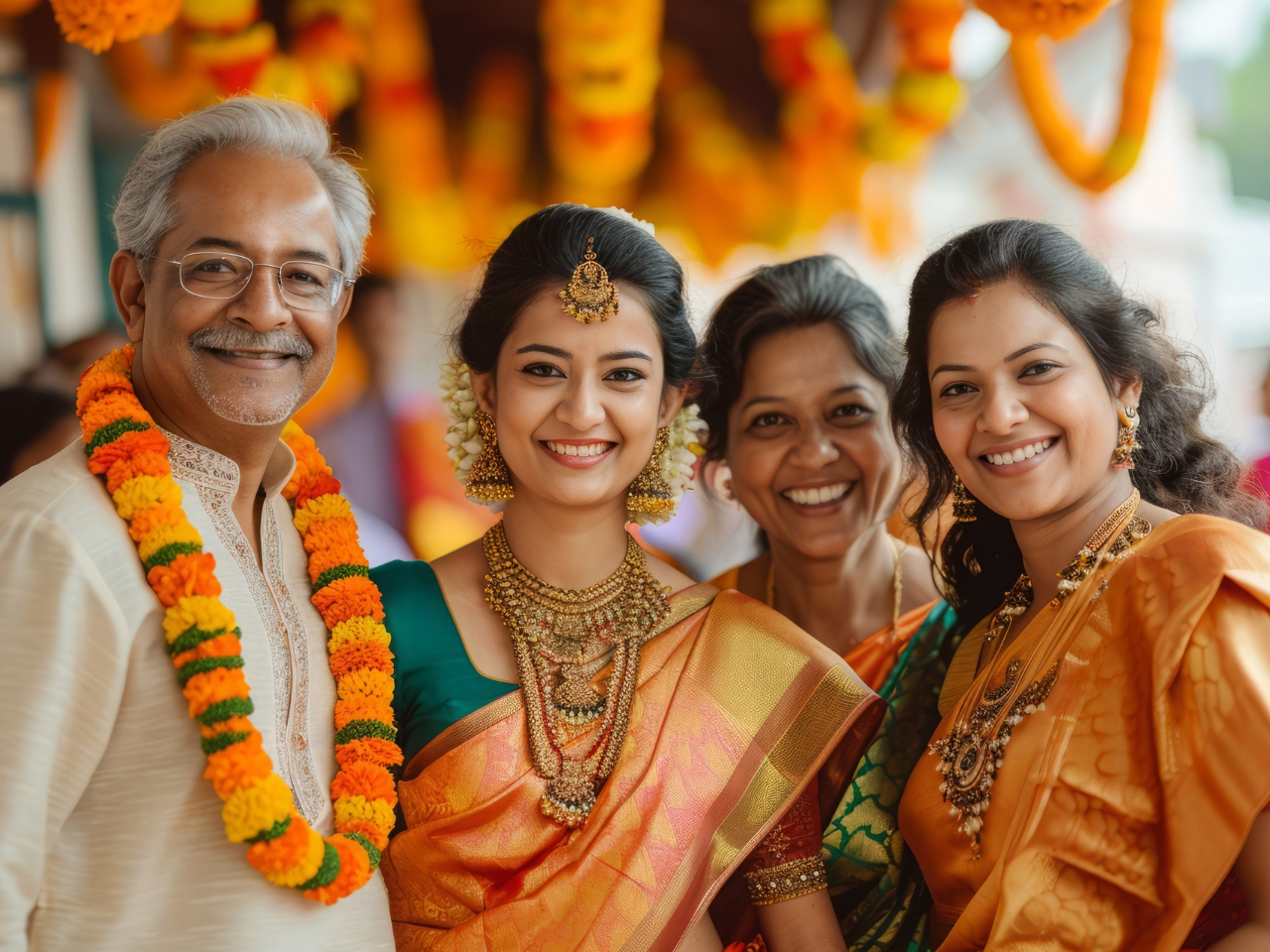
Jewellery and Colourful Traditional Costumes
Family Gathering and Sumptuous Feast
One of the most cherished activities during Deepavali is gathering with loved ones to share a sumptuous feast. Traditionally, families prepare a variety of dishes that are rich in spices—a hallmark of Indian cuisine. Popular offerings often include mutton and chicken curry, adhirasam (deep-fried snack made with rice flour and jaggery), and murukku (fried snack made with rice flour, black gram flour, and spices). While preparing the feast at home allows family members to bond and reconnect with their culture and traditions, some may choose to celebrate by dining out at restaurants. If you're unsure where to dine with your family, CariCari Listings features numerous eateries and restaurants, allowing you to compare options before heading out.
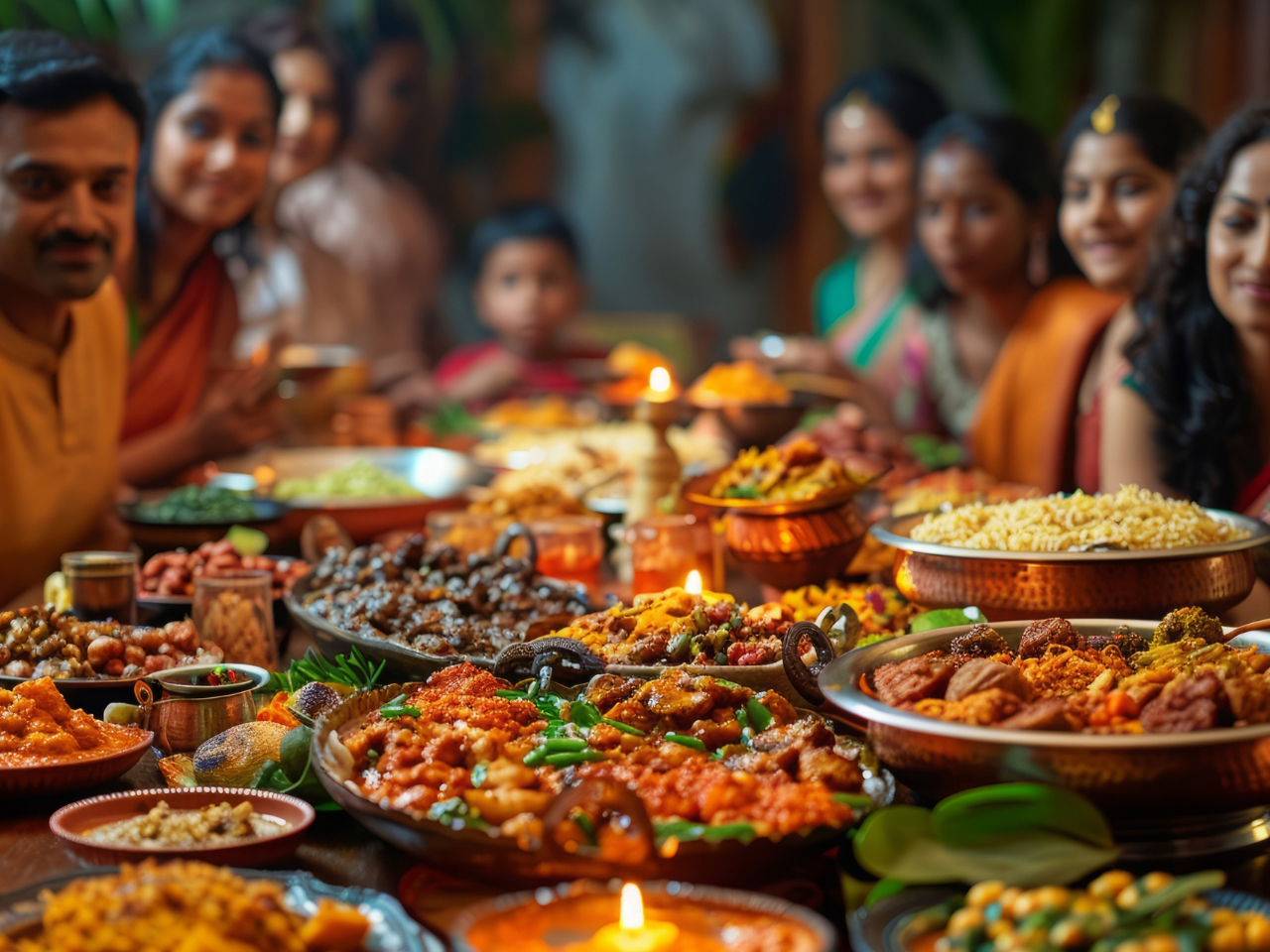
Family Gathering and Sumptuous Feast
Exchanging Gifts
The exchange of gifts is another delightful aspect of Deepavali. People often bring popular traditional delicacies or non-food items when visiting relatives and friends during this joyous occasion. This tradition, which generally embraced by all Malaysians during other celebrations, reflects the spirit of generosity and respect within the multicultural community of the country. Finding the perfect gift, however, can be daunting, especially with limited specialty shops available. Perhaps the list of featured gift shops on CariCari Listings can help you discover the best options.
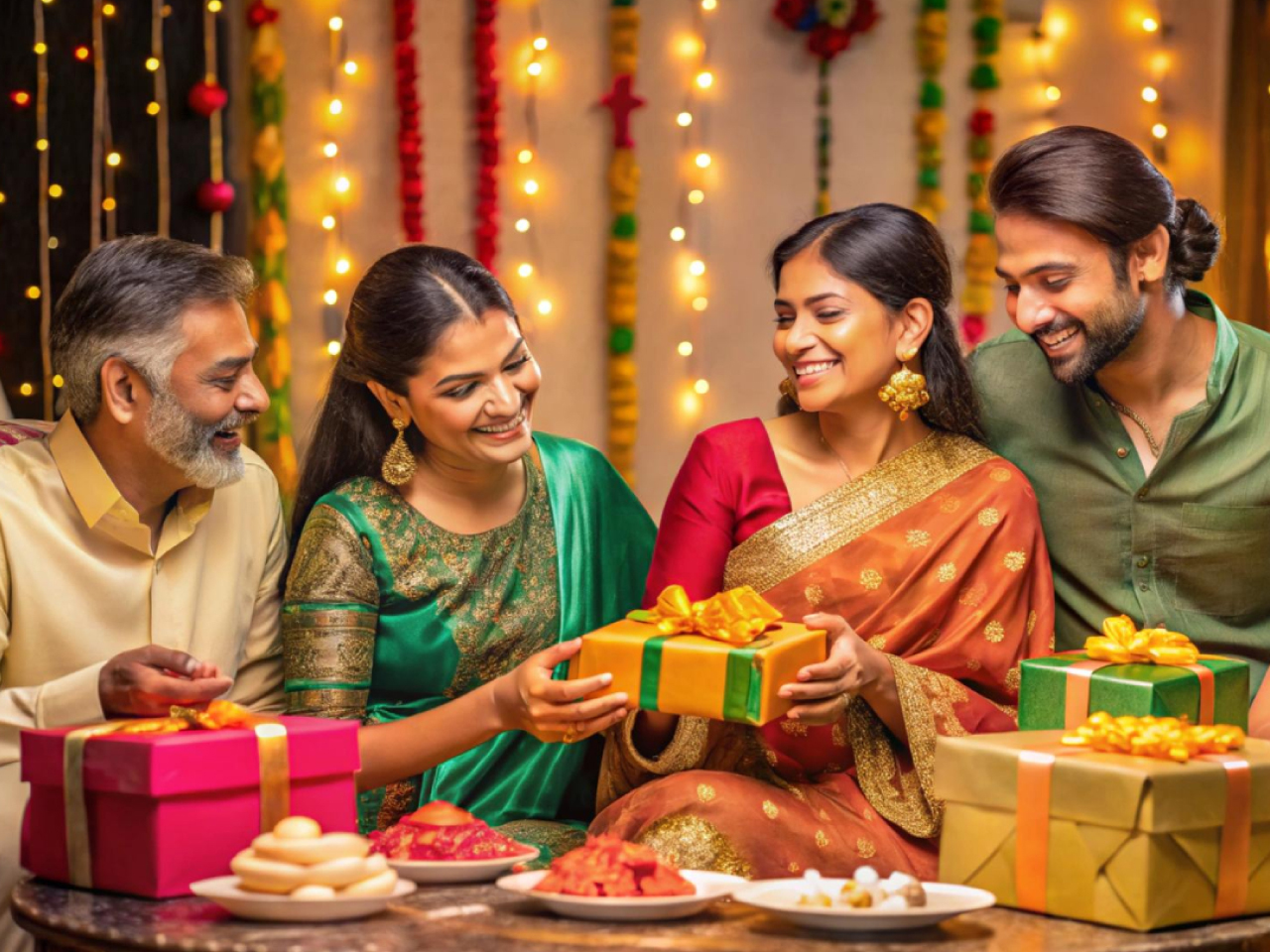
Exchanging Gifts
